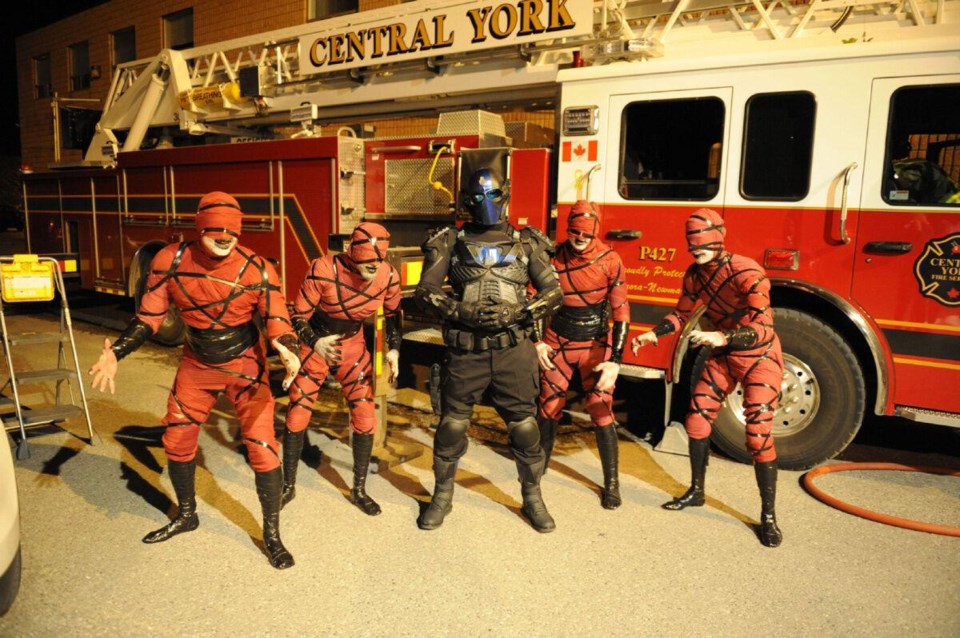Crimes motivated by bias and prejudice within York Region have seen a “disturbing” rise in recent years, but from the start of the Israel-Hamas war on October 7, 2023, such incidents have risen by 104.5 per cent.
This was the staggering figure cited by York Regional Police Chief Jim MacSween as the province announced a boost of $300,000 over the next three years to combat hate crimes through its Project United program.
The Jan. 26 announcement, which was led by Aurora-Oak Ridges-Richmond Hill MPP Michael Parsa, included a further $2.4 million over the same time frame for the YRP’s warrant apprehension and enhanced bail enforcement projects, and $1 million toward the development of Next-Generation 911 services.
The $300,000 earmarked for Project United will come from funds forfeited as proceeds of crime, said Parsa.
“[This funding] will aid to develop a proper response toward the rise of hate crimes in our region, [including] specialized training for officers and increased community outreach,” he said. “This initiative also includes conferences and educational resources provided to students.”
MacSween noted that this will lead to “proactive, preventive strategies” aimed at “building trust and understanding within our community.”
“We have seen a disturbing rise in crimes motivated by bias and prejudice since 2018 with a 42 per cent increase in 2022 and a smaller, but still significant 6.5 per cent increase in 2023,” said MacSween. “However, since the war in the Middle East began in October 2023, that number of hate or bias incidents [has] risen by 104.5 per cent. That should truly be alarming to everyone.
“Project United will employ a multi-faceted approach to combat this disturbing trend, including specialized training for officers and increased community outreach, as well as educational resources for students across York Region…. We will increase our community engagement with… and enhance our community partnerships to further educate the public on recognizing and reporting these types of incidents, which we know are typically under-reported. By focusing on a proactive, preventative strategies, Project United is aimed at building trust and understanding within our community: enhancing existing relationships with community partners in school, administrators to champion the values of inclusion, diversity and respect and providing our officers with specialized training they need for recognizing and investigate hate crimes and further educating our community.”
Project United, noted Deputy Chief Kevin McCloskey, is not specific to any one community within the Region of York, but it is aimed at training and instruction for YRP officers to address needs when they arise.
“Hate crimes are very nuanced and there are very specific things about incidents and language used that can impact people in ways that not everyone may understand or appreciate. That is critical for training,” he said. “Beyond that, a critical focus is to move it towards young people in our community. In order for us to move forward, we need to look at the new generation that is coming and is going to be the next leaders in our communities and teaching them and instructing them about hate crimes and about inclusion and acceptance is critical if we’re going to take some steps forward.”
The sharp rise in incidences since October 2023 has included both anti-Semitic and anti-Muslim “hate crime and hate bias incidents,” he added, but police are also seeing a “strong element” of anti-Black racism and “anti-Asian sentiments at times as well.”
“We want all people to feel comfortable in coming forward and reporting incidents to us,” said McClosky. “We know there is a reluctance and we want to be very clear in our messaging that there should be no reluctance. We want to know about it, we want to hear about it, because that is the only way we can make a difference and help people address that and deal with that in their community. That is a big focus of our community meetings and relationships that we have forged with both faith leaders and community leaders within the Region and we do meet regularly at faith-based institutions or community centres in order to speak to our community and make sure that they understand that when they call us there is going to be someone who is coming, is concerned and will address their issue.”
Brock Weir is a federally funded Local Journalism Initiative reporter at The Auroran



